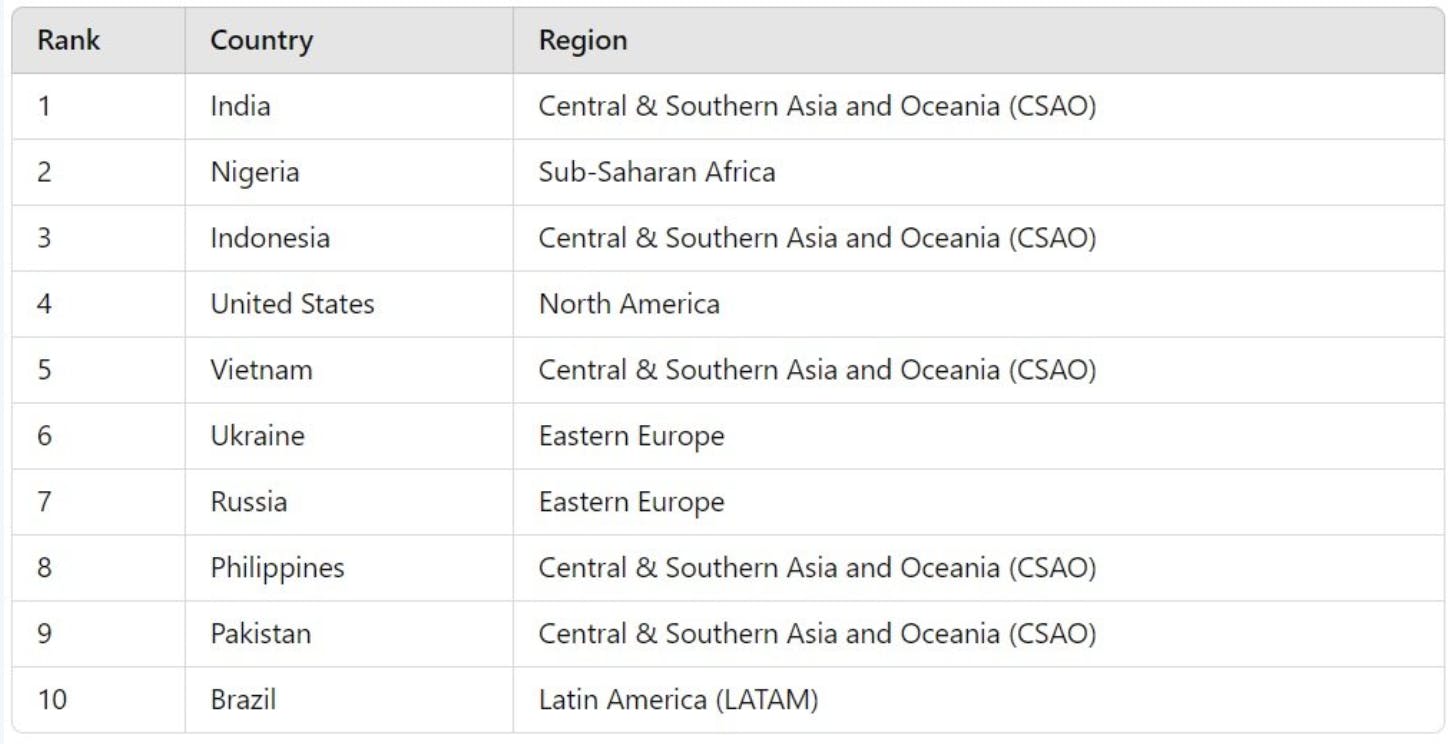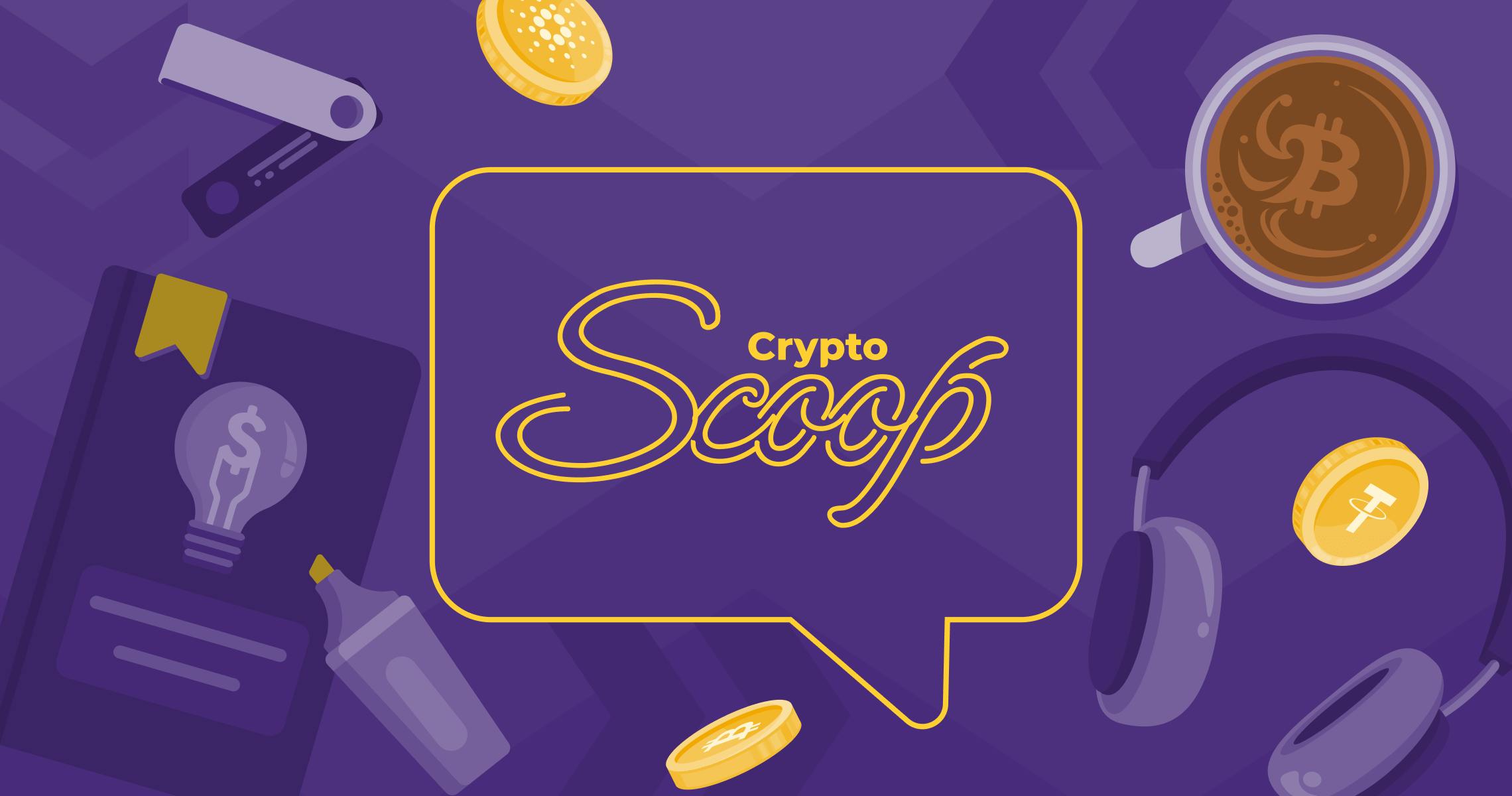Crypto Scoop: Crypto Regulation and Adoption Take Center Stage Across The Globe
Crypto Scoop
Back to blog
Fae Jolaoso
2024-09-13
Crypto Scoop
On this page
In this edition of the Crypto Scoop, stakeholders share predictions and initiatives as crypto regulation and adoption take centre stage worldwide.
As market sentiment improves, several countries across the globe pursue notable crypto regulation and adoption initiatives. In this edition of the Crypto Scoop, we review the following:
- Price moves of top cryptocurrencies
- Tether and Circle’s initiatives
- Ripple’s Stablecoin initiative
- Global crypto initiatives and regulation and more.
Price Moves of Top Cryptocurrencies
While Bitcoin trades at $57,000 and ETH at $2,300, the Crypto Fear Index has risen to 32, indicating improved market sentiments. This shift in sentiment aligns with bullish predictions from MicroStrategy's executive chairman, Michael Saylor, who forecasted that Bitcoin could reach an astonishing $13 million per coin over the next two decades. Saylor remains unfazed by Bitcoin’s recent price fluctuation as he suggested that Bitcoin will eventually outpace the S&P500’s returns by 8%, maintaining a compound annual growth rate of 44% in the short term before gradually slowing down.
In line with increasing institutional interest, Standard Chartered has launched a digital asset custody service in the UAE, focusing on secure storage of Bitcoin and Ethereum. The service, licensed by the Dubai Financial Services Authority, caters to the growing demand for regulated digital asset services, with Brevan Howard Digital as the first client. This launch demonstrates how major financial institutions are increasingly embracing cryptocurrencies, further validating their role in the global financial landscape.
While market optimism continues to rise, the Web3 space remains a beacon of hope for professionals, with over 86% expressing confidence in the industry’s potential. This positive sentiment stems from blockchain’s transformative promise of decentralisation, transparency, and self-sovereignty.
Meanwhile, Ethereum co-founder Vitalik Buterin announced that he will only endorse Layer 2 (L2) projects that meet stringent decentralisation standards by 2025, emphasising the need for cryptographic trust in the future of blockchain. He firmly stated that the era of glorified multi-signature rollups is over, signalling a significant shift in how Ethereum projects will be evaluated in the future.
However, as the crypto market strengthens, it faces growing external threats. According to the FBI, North Korean hackers may have shifted their focus to Bitcoin ETFs, drawn by their $52 billion holdings. As a result, firms like 21Shares are bolstering their security, bringing in additional custodians like Anchorage Digital Bank and BitGo to safeguard their assets, reducing the risks of potential hacks.
Tether Expands Investments into Agriculture as Stablecoin Competition Intensifies
Tether, the issuer of the world's largest stablecoin, USDT, has made a significant move into the agriculture sector by investing $100 million in Latin American agricultural giant Adecoagro. This investment represents a 9.8% stake in the company, marking Tether’s first venture into the agriculture and food industry after previous investments in artificial intelligence, Bitcoin mining, and digital education initiatives. Adecoagro, founded in 2002, is one of Argentina’s largest milk producers and has expanded into sugar, ethanol, and energy production in Brazil.
Tether’s decision to diversify its investments comes at a time when competition in the stablecoin market is heating up, especially as rival USDC issuer Circle continues to grow its presence in the decentralised finance (DeFi) space. Circle recently integrated Arbitrum, Ethereum's largest Layer 2 scaling solution, into its Web3 platform. This integration aims to expand the use of USDC by providing developers with tools for frictionless in-app wallets and supporting global payments, e-commerce, and gaming. The competition between USDT and USDC is fierce, with both stablecoins vying for dominance in a rapidly evolving DeFi ecosystem.
Meanwhile, Tether has also teamed up with the Tron blockchain and TRM Labs to launch the T3 Financial Crime Unit, an initiative aimed at combating illicit activities involving USDT on the Tron network. The collaboration will leverage Tron's technical expertise and TRM Labs’ anti-financial crime technology to identify and freeze suspicious transactions, further enhancing the security of the USDT ecosystem.
Ripple Prepares to Launch Stablecoin Amid Increased Institutional Interest
Ripple is gearing up to enter the stablecoin market with the introduction of Ripple USD (RLUSD), a digital currency pegged to the U.S. dollar. Expected to launch by the end of 2024, RLUSD is currently in private beta testing. Ripple’s CTO, David Schwartz, has emphasised that RLUSD is primarily designed for institutional use, highlighting its potential to unlock new liquidity and opportunities within the financial sector. This development marks a significant step for Ripple as it diversifies its offerings beyond its traditional XRP token.
Meanwhile, Grayscale, a leading cryptocurrency investment firm, has introduced the Grayscale XRP Trust, enabling accredited investors to gain exposure to XRP. This move could pave the way for a potential XRP exchange-traded fund (ETF), pending U.S. Securities and Exchange Commission approval. The trust aims to strengthen institutional interest in XRP by providing a more accessible investment vehicle.
Ripple’s Chief Legal Officer, Stuart Alderoty, recently raised concerns about how U.S. regulators approach cryptocurrency in relation to money laundering investigations. Alderoty pointed out that traditional financial institutions, including some banks, have historically been involved in larger-scale illicit activities, suggesting that a more balanced perspective on regulatory enforcement could benefit the sector. However, Ripple remains committed to working within the regulatory framework as it navigates these challenges.

The top 10 countries from Chainanalysis' 2024 Global Crypto Adoption Index
Recent Developments in Global Cryptocurrency Regulation and Adoption
As cryptocurrency continues to grow in popularity, countries worldwide are ramping up regulatory efforts while innovation in the sector accelerates. India has emerged as the world leader in cryptocurrency adoption for 2024, topping Chainalysis’ Global Crypto Adoption Index for the second consecutive year. Despite a local ban on offshore crypto exchanges, India’s massive population and growing interest in digital assets have driven it to remain a global leader in the sector. Chainalysis also reported that global crypto activity in 2024 has surpassed the peak levels seen during the 2021 bull market, primarily fueled by the launch of Bitcoin ETFs in the US.
Nigeria’s Securities and Exchange Commission (SEC) recently announced plans to take enforcement actions against businesses and individuals engaging in unregulated cryptocurrency transactions. This move aligns with the SEC’s commitment to protecting investors by ensuring that all entities offering crypto services operate within the regulatory framework.
Meanwhile, Latvia’s central bank is preparing for the upcoming EU crypto regulations by offering pre-licensing consultations for crypto-asset service providers (CASPs). The consultations aim to help companies align with the new Markets in Crypto-Assets (MiCA) framework, which takes effect in 2025. This proactive approach reflects the global trend of tightening regulations, with Latvia positioning itself as a crypto-friendly jurisdiction while maintaining compliance with European standards.
The United Arab Emirates (UAE) is also taking steps to streamline its crypto licensing regime. The UAE’s Securities and Commodities Authority (SCA) signed an agreement with Dubai’s Virtual Assets Regulatory Authority (VARA) to create a unified regulatory framework for virtual asset service providers (VASPs). This collaboration aims to promote regulatory cohesion across the country, allowing VASPs licensed by VARA in Dubai to operate more efficiently in other emirates. Meanwhile, the Central Bank has approved a new digital asset custodial risk insurance product, allowing custodians and exchanges to offer customers greater protection against potential losses.
The UK government has introduced a bill aimed at clarifying the legal status of cryptocurrencies and NFTs under domestic law. This legislation would categorise digital assets as “things,” giving them the same legal recognition as personal property and providing protection against fraud and scams.
In the US, former President Donald Trump has announced the launch of his family’s cryptocurrency platform, World Liberty Financial, which positions itself as an alternative to traditional banking. Trump’s platform is gaining attention, with a live launch event planned for September 16th. His venture underscores the increasing mainstream interest in decentralised finance (DeFi), as traditional financial systems face growing competition from innovative blockchain solutions.
Disclaimer: This article is for information purposes only and should not be construed as legal, tax, investment or financial advice. Nothing contained in this article constitutes a solicitation, recommendation, endorsement or offer by Yellow Card to buy or sell any digital asset. There is risk involved in investing or transacting in digital assets, please seek professional advice if you require one. We do not assume any responsibility or liability for any loss or damage you may incur dealing with digital assets. For more information on Digital Asset Risk Disclosure please see - Risk Disclosure.


